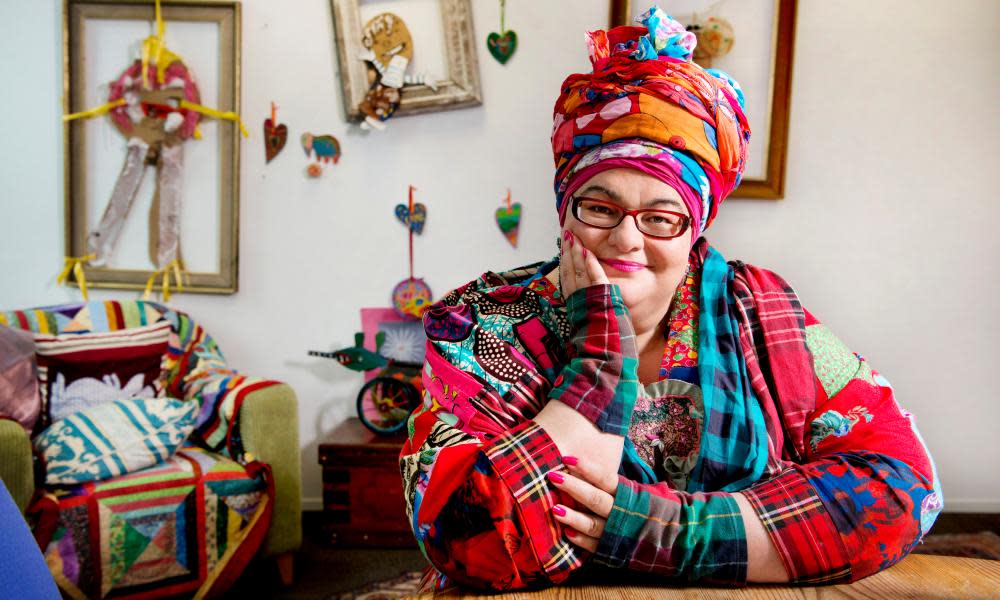Mismanagement claims against Kids Company founder thrown out

The founder and former chief executive of Kids Company, Camila Batmanghelidjh, has been exonerated by a court of allegations that the charity she created collapsed because she had failed to operate it on a proper and financially sustainable basis.
After a three-and-a-half-year legal case, the court threw out claims by the official receiver that Batmanghelidjh and seven former trustees of the charity failed to properly manage the charity in the tumultuous final months of its existence.
The judge said that while the charity, which went into insolvency in August 2015, had experienced cashflow difficulties, its board had taken steps to ensure it had a plan to manage the challenges it faced, and the charity might have survived had it not been brought down by unsubstantiated allegations of sexual abuse.
The judge praised Batmanghelidjh for the “enormous dedication she showed to vulnerable young people over many years” and her achievements in building a charity that “until 2014 was widely regarded as a highly successful one, doing what senior members of the government rightly described as incredible work.”
Mrs Justice Falk added: “It would be unfortunate if the events the focus of this decision were allowed to eclipse those achievements.”
The judge also praised the seven trustees for their role in the final months of Kids Company. “Most charities would, I think, be delighted to have available to them individuals with the abilities and experience that the trustees in this case possess. It is vital that the actions of public bodies do not have the effect of dissuading able and experienced individuals from becoming or remaining charity trustees.”
There had been no dishonesty, bad faith or personal gain on the part of Batmanghelidjh or the trustees, Mrs Justice Falk said. Nor had there been any inappropriate expenditure on children assisted by the charity.
Batmanghelidjh told the Guardian: “I’m so relieved, for the children, for the staff, the trustees, for the volunteers. They have been shamed by the many false stories about Kids Company over the years. I’m so glad I stood up against it and didn’t back down. This judgment brings tears to my eyes. I’m so glad that finally the facts won.”
The official receiver had asked the court to disqualify Batmanghelidjh as a company director for six years for her alleged part in the collapse of the charity. Although she was not formally a member of the board, the receiver argued her importance as the charity’s founder and chief executive made her a “de facto” trustee.
It also sought four-year director bans for five Kids Company trustees at the time of its closure in August 2015: its former chair, the TV executive Alan Yentob, Richard Handover, Jane Tyler, Andrew Webster and Francesca Robinson. A three-year ban was sought for Vincent O’Brien, and a two-and-a-half-year ban for Erica Bolton.
The court judgment will clear the way for a separate Charity Commission inquiry to be published into the administration, governance and financial management of Kids Company. The commission’s statutory inquiry has been ongoing since August 2015 but was put on hold when the official receiver took action.
The official receiver had argued, backed with thousands of pages of evidence, that Kids Company was poorly governed and managed, that it operated inadequate financial controls and failed to put away sufficient financial reserves. The charity had knowingly operated an unsustainable model, it argued.
However, Mrs Justice Falk ruled that while aspects of it were high risk, the Kids Company operating model was not unsustainable in principle. She said the board and Batmangheldidjh had formulated a restructuring plan along with the government to refinance the charity.
“In summary, the court’s decision is the allegation is not made out against any of the directors and they are not unfit; in other words, the case against them fails,” said Mrs Justice Falk.
Set up by Batmanghelidjh in south London in 1996, Kids Company became one of the best-known charities of the early 21st century. It counted on high-profile political backing from the likes of Gordon Brown and David Cameron, and support from artists such as Coldplay and JK Rowling.
Iranian-born Batmanghelidjh, a psychotherapist by training, pioneered an intensive therapeutic model of working with maltreated and traumatised youngsters, often taking on the care of children who had been rejected by mainstream services after experiencing sexual abuse, violence, addiction and mental illness.
Batmanghelidjh became a celebrity, yet despite raising hundreds of millions of pounds from the public and philanthropists and winning more than £42m in government grants over a 15-year period, Kids Company often struggled to keep its finances on track as its costs and ambitions rose.
A month before it collapsed, Batmanghelidjh announced she was to step down as part of a £3m Whitehall plan to refinance the charity. That restructuring never took place, and in August 2015 the trustees wound up Kids Company after the Metropolitan police announced an inquiry into allegations of sexual abuse at the charity, revealed by BBC Newsnight.
The police inquiry subsequently found no evidence of criminality or failures of safeguarding. Batmanghelidjh and Yentob have claimed the “malicious and untrue allegations” of child abuse against the charity were deliberately orchestrated to fatally damage it and were directly responsible for its closure.
Two parliamentary reports have been published on Kids Company. The first, by the public accounts committee in November 2015, found tens of millions of government grants were spent by the charity without proper Whitehall assessment of whether it achieved value for money.
A February 2016 report by the Commons public administration and constitutional affairs committee blamed a combination of “negligent” trustees and the “unaccountable and dominant” Batmanghelidjh for the charity’s failure.

 Yahoo News
Yahoo News 
